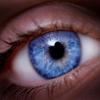Has anyone found any good research on binaural beats? I've had a quick look and the best I've found showing any cognitive improvements is the following study, but there doesn't seem to be much research backing most of the claims?
Binaural auditory beats affect vigilance performance and mood.Lane JD,
Kasian SJ,
Owens JE,
Marsh GR.
AbstractWhen two tones of slightly different frequency are presented separately to the left and right ears the listener perceives a single tone that varies in amplitude at a frequency equal to the frequency difference between the two tones, a perceptual phenomenon known as the binaural auditory beat. Anecdotal reports suggest that binaural auditory beats within the electroencephalograph frequency range can entrain EEG activity and may affect states of consciousness, although few scientific studies have been published. This study compared the effects of binaural auditory beats in the EEG beta and EEG theta/delta frequency ranges on mood and on performance of a vigilance task to investigate their effects on subjective and objective measures of arousal. Participants (n = 29) performed a 30-min visual vigilance task on three different days while listening to pink noise containing simple tones or binaural beats either in the beta range (16 and 24 Hz) or the theta/delta range (1.5 and 4 Hz). However, participants were kept blind to the presence of binaural beats to control expectation effects. Presentation of
beta-frequency binaural beats yielded more correct target detections and fewer false alarms than presentation of theta/delta frequency binaural beats. In addition, the
beta-frequency beats were associated with less negative mood. Results suggest that the presentation of binaural auditory beats can affect psychomotor performance and mood.
This technology may have applications for the control of attention and arousal and the enhancement of human performance.
Edited by Gecko, 14 February 2012 - 09:20 AM.


















































